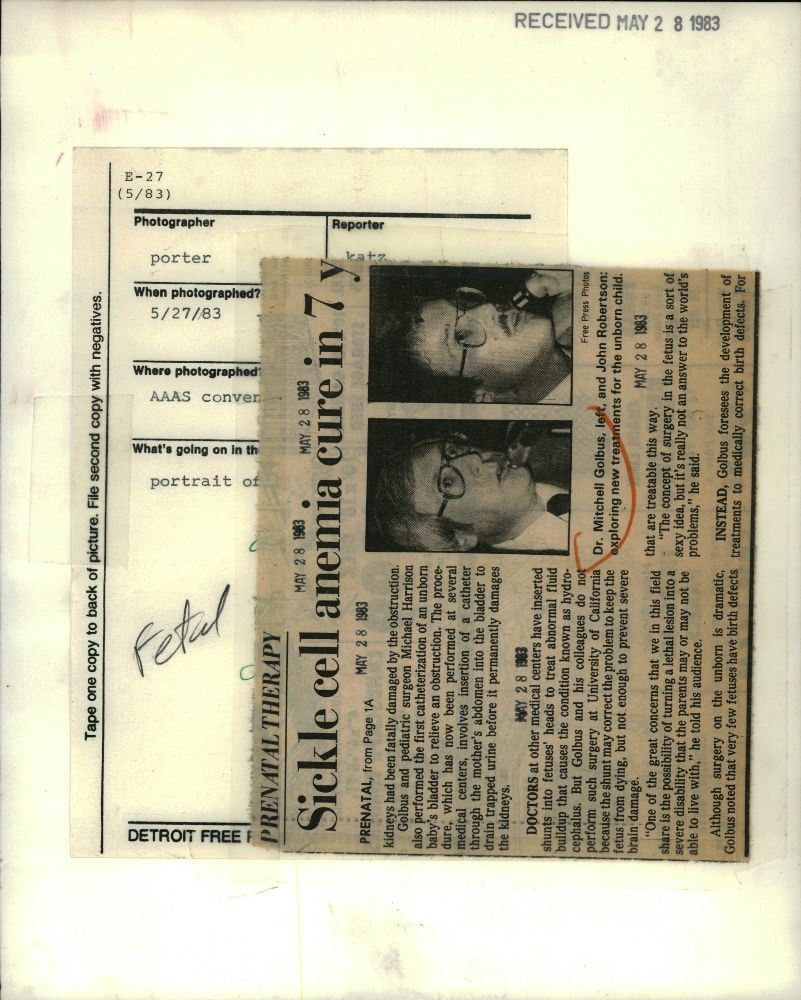Caption: Dr. Mitchell Golbus, left, and John Robertson: exploring new treatments for the unborn child.PRENATAL THERAPYSickle cell anemia cure in 7 yPRENATAL, from Page 1Akidneys had been fatally damaged by the obstruction.Golbus and pediatric surgeon Michale Harrison also performed the first catheterization of an unborn baby's bladder to relieve an obstruction. The procedure, which has now been performed at several medical centers, involves insertion of a catheter through the mother's abdomen into the bladder to drain trapped urine before it permanently damages the kidneys.DOCTORS at other medical centers have inserted shunts into fetuses' heads to treat abnormal fluid buildup that causes the condition known as hydrocephalus. But Golbus and his colleagues do not perform such surgery at University of California because the shunt may correct the problem to keep the fetus from dying, but not enough to prevent severe brain damage."One of the great concerns that we in this field share is the possibility of turning a lethal lesion into a severe disability that the parents may or may not be able to live with." he told his audience.Although surgery on the unborn is dramatic, Golbus noted that very few fetuses have birth defects that are treatable this way."The concept of surgery in the fetus is a sort of sexy idea, but it's really not an answer to the world's problems," he said.INSTEAD, Golbus foresees the development of treatments to medically correct birth defects. For..
The front and back of this photograph are pictured below.



